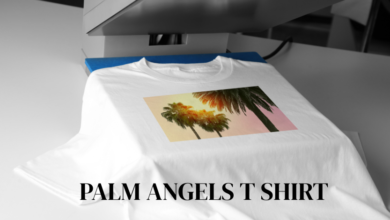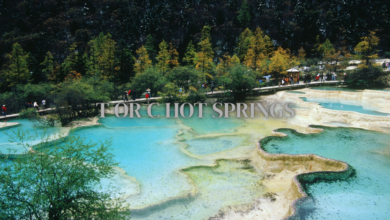Comprehensive Guide to BioLegend: Products, Applications, and Quality You Can Trust

If you’re reading this, you probably have come across BioLegend in your life-science research work. Maybe you saw it in a paper’s methods section, or your lab is considering purchasing one of their antibodies. Either way, it’s smart to understand who BioLegend is, what they offer, and how to use their reagents effectively.
I’ve had experience working with multiple reagent vendors over the years, and I’ve seen how choosing the right antibody or kit can make or break an experiment. In this guide, I aim to walk you through BioLegend—from its origins, to its product lines, to how you can pick and use its tools wisely. I’ll also offer opinions and tips based on real lab experience, especially things I wish someone told me early on.
By the end, you should feel confident when you see “BioLegend” on a catalog page or methods section, and know how to integrate their products into your research workflow.
What Is BioLegend? History and Structure
BioLegend is a biotechnology company that develops and manufactures high-quality antibodies, reagents, kits, and tools used widely in biomedical research. Their mission is to accelerate discovery in immunology, neuroscience, cancer, stem cell biology, and more, by supplying reliable reagents and strong technical support.
Founding & Growth
BioLegend was founded in 2002 by Gene Lay, D.V.M. Over time, they have expanded internationally, with presence and partnerships in Europe, Asia, and Japan. Their product lines grew from basic antibodies into multiplex assays, recombinant proteins, custom services, and advanced single-cell tools.
A major milestone came in 2021, when BioLegend was acquired by PerkinElmer (now operates under the umbrella “Revvity”) for approximately $5.25 billion. This acquisition allowed BioLegend to scale further, integrate with PerkinElmer’s diagnostics and life science tools, and expand into new markets.
Today, BioLegend’s corporate and manufacturing base is in San Diego, California, with distribution and regional offices globally.
BioLegend’s Product Portfolio: An Overview
One of BioLegend’s strengths is its broad and deep product catalog. Here’s a breakdown of their main product classes.
3.1 Antibodies & Conjugates
This is the bread and butter. BioLegend offers thousands of antibodies (monoclonal, polyclonal) against a wide array of human, mouse, and other species’ targets. They provide many conjugated forms (e.g. fluorophores, biotin, enzymatic labels) so you can use them directly in flow cytometry, immunofluorescence, immunohistochemistry, or Western blot.
They also offer secondary antibodies, isotype controls, and custom conjugation services.
3.2 ELISA / Immunoassay Kits
BioLegend’s ELISA kits allow you to measure proteins (cytokines, chemokines, growth factors) quantitatively in samples like serum, plasma, cell culture supernatants. Their kits often come with optimized standards, buffers, detection reagents, and validated protocols—important to reduce variability.
3.3 Recombinant Proteins & Growth Factors
To support functional assays, BioLegend offers recombinant cytokines, growth factors, and signaling proteins. These are useful as positive controls, stimulation agents, or for cell culture work.
3.4 Buffers, Solutions, Ancillaries
You need buffers, blocking reagents, wash solutions, fixation/permeabilization buffers, staining buffers, etc. BioLegend supports this need through well-formulated reagents, often matched to their antibodies’ performance to minimize compatibility issues.
3.5 Magnetic Cell Separation (MojoSort, etc.)
BioLegend’s MojoSort series enables magnetic bead–based separation of cells. You can isolate specific cell populations by positive or negative selection, using antibody-coated magnetic beads. This lets you purify, enrich, or deplete cell types for downstream assays. The benefit is you can get relatively pure populations without flow sorting, which can be gentler on cells.
3.6 Multiplex & Proteogenomics Technologies (e.g. TotalSeq)
One of the more advanced offerings from BioLegend is their TotalSeq platform, where antibodies are conjugated to oligonucleotides (DNA barcodes). This lets you combine antibody detection with single-cell RNA sequencing or other multiomic assays. It’s becoming increasingly important for proteogenomics workflows, where you want to measure proteins and transcripts simultaneously in single cells.
3.7 IVD / Clinical Grade Products
Some BioLegend products are labeled for in vitro diagnostic (IVD) or clinical use. These are manufactured under higher regulatory oversight, with strict quality controls and GMP processes. These reagents allow use in clinical or regulated lab settings, though many standard products remain for research use only.
Read Also: The Complete Guide to Corporate Research Associates
Applications & Use Cases in Research
Let’s talk about how researchers use BioLegend products in real workflows.
4.1 Flow Cytometry Applications
Flow cytometry is one of the most common applications. Because BioLegend offers antibodies conjugated to many fluorophores (PE, FITC, APC, Brilliant Violet dyes, etc.), you can build robust multiparameter panels. These allow you to phenotype immune cells, detect intracellular cytokines, apoptosis markers, proliferation markers, etc.
One tip from my experience: always check the spectral overlap (when using multiple fluorophores) and compensation controls. BioLegend provides spectral data and recommended compensation settings in their datasheets, which is very helpful.
4.2 Immunology & Immune Cell Profiling
BioLegend’s immunology focus is strong. They cover both innate and adaptive immunity, with reagents to identify T cells, B cells, NK cells, monocytes, dendritic cells, and more. They also provide functional assay reagents for intracellular signaling proteins, cytokines, activation markers, and more.
If you are studying autoimmune disease, vaccine response, or immune therapies (like checkpoint inhibitors), using validated reagents from a reliable supplier is key.
4.3 Neuroscience Applications
Neuroscience researchers use BioLegend antibodies and reagents to study neuroinflammation, synaptic proteins, neuronal markers, and protein aggregation. Because the brain has complex cell types and low abundant proteins, good antibodies and blocking strategies are critical.
4.4 Cancer / Oncoimmunology
In cancer, many groups use BioLegend antibodies to characterize tumor-infiltrating immune cells, analyze checkpoint molecules (like PD-1, PD-L1, CTLA-4), and measure cytokines in tumor microenvironments. The reagents must be specific and sensitive given the challenging background. Use proper isotype controls, blocking, and validation.
4.5 Stem Cell & Regenerative Studies
Stem cell research often uses surface markers for sorting, differentiation markers, and functional assays. BioLegend’s catalog includes antibodies for stem cell markers and differentiation antigens. They also provide reagents compatible with live cells, such as non-toxic dyes and sorting-friendly buffers.
4.6 Single-Cell & Proteogenomics
With TotalSeq and similar technologies, you can label cells with antibody-oligo conjugates, then perform single cell RNA-seq or ATAC-seq in the same assay. This gives you combined protein + transcript readouts per cell. This is powerful for discovering new cell states, trajectories, or immune cell heterogeneity.
4.7 Cell Sorting, Isolation & Functional Assays
If you isolate T cells, B cells, monocytes, etc., you can run downstream assays like proliferation, cytokine release, signaling analyses. BioLegend’s MojoSort (magnetic) or antibody reagents feed into that workflow.
Quality, Standards & Technical Support
One of the major reasons labs pick a reagent vendor is trust — you want reagents that perform reliably.
Manufacturing Standards & Certifications
BioLegend’s operations follow strict quality standards. Their facility is certified under ISO standards (for example, ISO 13485 for diagnostic manufacturing) and other relevant norms. Products designated IVD or GMP are manufactured under stricter oversight.
They also maintain rigorous lot-to-lot consistency and quality checks, ensuring reproducibility across experiments.
Reproducibility & Validation
BioLegend publishes technical datasheets, validation images, recommended protocols, and sometimes peer references. These materials help researchers judge whether an antibody or kit is likely to work under their conditions. As a user, you should always validate in your own system (e.g., run positive/negative controls) before fully relying.
Technical Support & Documentation
BioLegend provides good documentation: datasheets, protocols, troubleshooting guides, FAQs. They also have a technical support team to answer questions about buffer compatibility, antibody clones, staining conditions, etc. For custom requests (e.g. new conjugates, antibody development), they offer custom services.
From my experience, responding to technical support is sometimes slow (as with many vendors), so plan ahead if you anticipate needing custom work.
How to Choose & Use BioLegend Products (Practical Advice)
Here’s where I share lessons I learned (through trial and error) on using BioLegend reagents effectively.
Reading Datasheets & Clone Information
-
Every antibody has a clone name (e.g. “Clone X123”). Use that clone when comparing across vendors.
-
Check antigen species reactivity (human, mouse, rat, etc.).
-
Check the conjugate (fluorophore, enzyme, biotin, etc.). Some fluorophores are brighter or more stable.
-
Look at the recommended dilution, optimal buffer, storage conditions.
Choosing the Right Antibody or Reagent
-
Prefer well-validated clones with published citations.
-
For low-abundance targets, use brighter conjugates or amplify signal.
-
If you’re combining many fluorophores, avoid spectral overlap and use compensation.
Protocol Tips & Buffer Compatibility
-
Use recommended buffers (staining buffer, blocking buffer). Sometimes the buffer from one vendor clashes with another vendor’s antibody.
-
Always include negative controls, isotype controls, fluorescence minus one (FMO) controls.
-
Incubation times and temperatures matter—too short and signal is weak; too long and background rises.
Troubleshooting Common Issues
-
Weak or no signal: check antibody titer, check antigen expression, ensure cells are viable, ensure fluorophore is not degraded.
-
High background / non-specific binding: increase blocking, more washes, reduce antibody concentration.
-
Lot variation: track lot numbers. When switching lot, retest a validation sample.
-
Fluorescence spillover: check compensation, use proper controls.
Example Workflow (Flow Cytometry Panel)
Let’s say you want to phenotype T cells and measure activation markers:
-
Choose antibodies: CD3 (FITC), CD4 (PE), CD8 (APC), activation marker (e.g. CD69 in PE-Cy7). Make sure they come from BioLegend or compatible ones.
-
Titrate each antibody to find the best concentration (e.g. 0.5, 1, 2 µg/mL).
-
Stain live cells in optimized buffer (with Fc block, etc.).
-
Wash thoroughly, fix/permeabilize if intracellular staining is needed.
-
Acquire data, run compensation controls, validate gating.
This is a simple example but shows how reagent choice, titration, and controls matter.
Pricing, Distribution & Global Reach
Cost Factors & Pricing
BioLegend’s products are premium reagents, and cost depends on several factors:
-
Conjugate (e.g. PE, Alexa dyes, oligo tags)
-
Grade (research grade, GMP, IVD)
-
Custom work (new conjugation, custom antibody)
-
Pack size (e.g. 100 tests, 25 tests)
-
Licensing or exclusive use
It’s common to pay more for multiplex or oligoconjugated reagents (like TotalSeq) than for “standard” antibodies.
Global Distribution & Shipping
BioLegend ships globally via regional distribution centers (e.g. Europe, Asia) and local distributors. In many countries, including Pakistan, you must work via a local distributor or importer. Shipping of biological reagents often requires cold chain (dry ice, overnight) to preserve stability.
Customs, import duties, and local regulatory restrictions may apply. Plan ahead and check with the local distributor about expected delivery times and conditions.
Regional / Local Distributors
If you’re in Pakistan (like me), it’s smart to find an authorized BioLegend distributor in your region to reduce customs problems, get localized support, and maybe benefit from favorable pricing. Many vendors list distributors on their websites or have local representatives.
Comparison & Competitive Landscape
No vendor is perfect. It’s useful to compare BioLegend with others and understand strengths/weaknesses.
Major Competitors
Some big names include Thermo Fisher (Invitrogen, eBioscience), BD Biosciences, Miltenyi Biotec, Abcam, R&D Systems, Bio-Rad, etc.
Strengths of BioLegend
-
Broad and deep catalog
-
High quality, validated reagents
-
Good technical documentation
-
Advanced technologies (Multiplex, TotalSeq, etc.)
-
Reliable magnetic separation systems (MojoSort)
-
Backing from a large company (PerkinElmer / Revvity)
Weaknesses or Considerations
-
Price is sometimes higher than generic or local vendors
-
Some advanced reagents (e.g. oligo conjugates) may have longer lead times
-
Technical support responsiveness can vary
-
As with any antibody vendor, not every clone works in every lab—validation is still needed
When to Choose a Different Vendor
-
If cost is prohibitive and your application doesn’t demand premium
-
If a direct competitor offers a clone that works in your system
-
If you need extremely specialized reagents outside BioLegend’s catalog
-
For highly regulated clinical-grade products in a specific region where BioLegend hasn’t cleared regulatory approvals
Future Directions & Innovations
Looking ahead, here’s what I expect from BioLegend and what researchers should watch.
-
Spatial omics & imaging + multiplex: combining protein, transcript, spatial location in tissues
-
Higher multiplexing capability: more than 100 markers in single cell
-
Better barcoding and normalization methods for proteogenomics
-
Integration with AI & data analysis tools (they already acquired Qognit)
-
More clinical / diagnostic reagents as their parent company expands
-
Sustainable reagents & green manufacturing
These directions mirror the broader trends in life sciences: combining multiomic data, scalability, and robust, reproducible reagents.
Tips & Cautions / Best Practices
Before I wrap up, here are some practical tips:
-
Always validate new antibodies in your own system using positive/negative controls.
-
Record lot numbers, expiration dates, and performance metrics.
-
Keep backup reagents (in case a clone gets discontinued).
-
Use proper controls (isotype, FMO, unstained).
-
Keep temperature, light, and storage conditions in mind (many fluorophores degrade).
-
Communicate with BioLegend support early if you plan custom work—schedule lead times.
Conclusion
BioLegend is a strong, well-established reagent provider in the life sciences space. Their broad product range, commitment to quality, and advanced offerings make them a reliable choice for many research labs. But even the best reagent only gives you good results if you pair it with smart planning, proper controls, and validation.
If you follow best practices in choosing clones, reviewing datasheets, planning shipping in your region, and troubleshooting carefully, you’ll get better reproducibility and confidence in your results.
I hope this guide helps you make more informed decisions when you see a “BioLegend” antibody in your next protocol.



